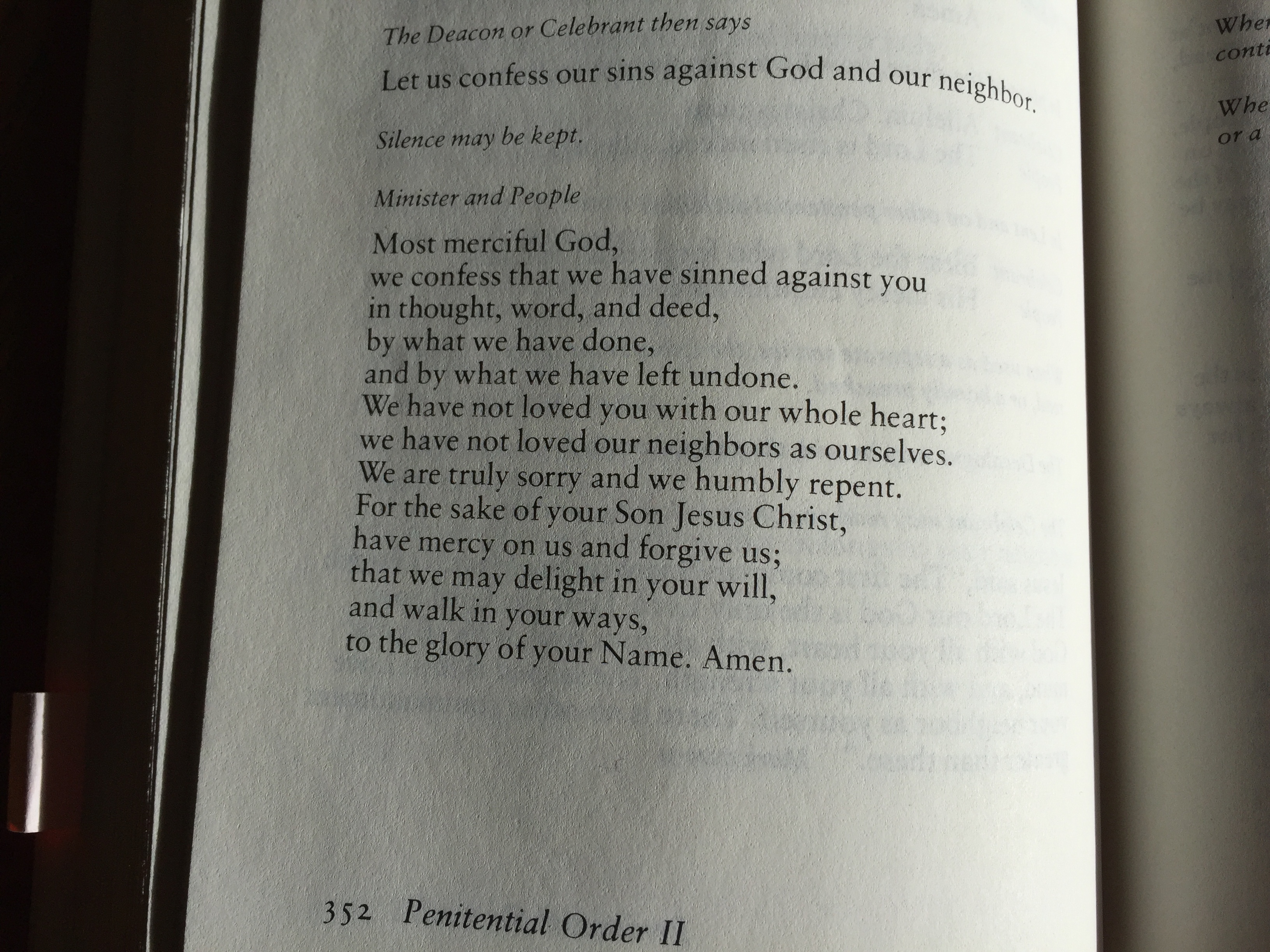“Then Jesus was led by the Spirit into the desert to be tempted by the devil.”
Ruth Haley Barton states,
“We reach for God because he first reached for us. Nothing in the spiritual life originates with us. It all originates with God. So it is that the spiritual life begins in this most unlikely place.” – Sacred Rhythms, page 25.
The Psalmist declares the soul’s desire
O God, you are my God,
earnestly I seek you;
my soul thirsts for you,
in a dry and weary land
where there is no water. – Ps. 63
This season of Lent is different for me. I resist and find suspect the language of The Book of Common Prayer, “…Create and make in us new and contrite hearts, that we, worthily lamenting our sins and acknowledging our wretchedness, may obtain you…” BCP, Collect for Ash Wednesday page 217.
The language of Lent has swung too far toward our wretchedness. I don’t like the connection between feeling wretched and obtaining God. First, I think the feeling of wretchedness is forced and unnatural – we don’t really buy it. So in order to gain this wretched opinion of ourselves we engage in self-denial, self-agnegation, self-abasement and even some mild abuse, namely through fasting and abstinence.
To make our Lenten fast even more forced and wrong-headed, we then fast from chocolate, soda or some other thing we really shouldn’t eat anyway; and Lent becomes a reason to diet. This has nothing to do with spirituality and more to do with body image and our Fat-Tuesday-is-everyday affluent indulgent culture.
Scot McKnight declares
“Fasting is the natural, inevitable response of a person to a grievous sacred moment in life.” – Fasting, page xxi.
We naturally fast when something is seriously wrong. When my wife was very sick I didn’t eat – I just couldn’t. I didn’t even know I was hungry. I didn’t sleep. I didn’t do anything normal.
So Lent, on one level, is an acknowledgement that something is terribly terribly wrong – we have drifted far from g-d. We have drifted so far that we don’t even feel the distance between g-d and us. We are lost. Think of those times when you are driving in a rental car by yourself in a big city and you are so lost, so disoriented – it is a desperate moment. We need help, we realize we have lost control of our destiny. We will even stop and ask directions – despite that violent, revolting anguish we males experience deep within our X-Chromosome. That is desperation – something is terribly wrong. We naturally fast when things have gone terribly wrong.
Lent is an exploration into the gap between God and us. As Thomas Merton wrote,
…I no longer desire to see anything that implies a distance between You and me: and if I stand back and consider myself and You as if something had passed between us, from me to You, I will inevitably see the gap between us and remember that distance which kill me. – Seven Storey Mountain, page 421
Merton’s next sentence is his response to this felt gap:
“That is the only reason why I desire solitude – to be lost to all created things, to die to them and to the knowledge of them, for they remind me of my distance from You.”
Lent is a time to realize the gap. The desert solitude is the natural response to this feeling that something is terribly wrong. This is a very real wrong – not forced or faked. We are lost from g-d, and the Spirit is calling us back. Lent is the time to return. Barton says that “return” is a great word to describe the spiritual journey. (lecture)
G-d initiates our desire for g-d. Desire is a gift. The Spirit led Jesus out into the desert. It was not Jesus’ idea. This is my major corrective for observing the season of Lent. Lent is a response to the g-d given desire for g-d. We want to fast because something is terribly wrong. We want to engage the desert because it is the natural place we want to go to because we don’t want worldly distractions – the world just suddenly seems so silly and mindless. Flee!
I would suggest both a fast from normal foods – meat for example. Or engage in a traditional 24-hour fast of dinner to dinner – no food – on say, Wednesday. Don’t “breakfast” or lunch. Eat nothing.
Our family plans on doing the same thing we did last year, which is to bake and eat bread for dinner on Mondays. We make focaccia bread, peasant bread. We eat it with olive oil. Laurie wants to add a vegetable this year. Okay. We drink only water. Last year it worked. It said “something is off, something is wrong” to the kids. It was simple and reflective. We will add a Psalm or a prayer too.
Think in terms of both a discipline or practice of abstinence – giving something up; and in terms of a discipline of engagement – start doing something… like fixed hour prayer, or read a spiritual book and journal. Avoid dieting and fitness kicks. You should be doing that anyway. Avoid punishing your self. Instead respond to the holy longing put there by g-d.
Jesus asked several people ‘what do you want me to do for you?’ And he is asking us too. He is not saying, “You miserable wretch! You should feel bad about your self!” When we make out Lent to be a time of feeling wretched, we lie to ourselves and use the fact of our sin to indulge ourselves with our own self-absorbed wretchedness, which as I said at the beginning, I don’t think we actually believe anyway. “We are far too easily pleased” with our selves – especially when we churn up feelings of wretchedness. (Ref. C.S. Lewis, The Weight of Glory, page 26)
Our Lord finds our desires not too strong, but too weak. We are half-hearted creatures, fooling about with drink and sex and ambition when infinite joy is offered us, like an ignorant child who wants to go on making mud pies in a slum because he cannot imagine what is meant by the offer of a holiday at the sea. We are far too easily pleased.









